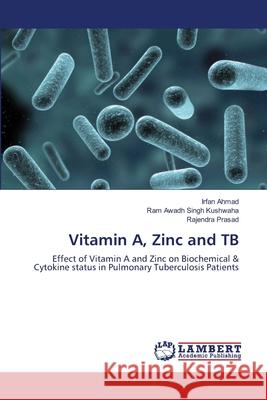Vitamin A, Zinc and TB » książka
Vitamin A, Zinc and TB
ISBN-13: 9783659362194 / Angielski / Miękka / 2013 / 84 str.
Tuberculosis (TB) is as old as mankind. This remains a major public health problem. World Health Organization declared the re-emerging menace of TB a global emergency. Malnutrition is frequently observed in patients with pulmonary tuberculosis, but their nutritional status, especially of micronutrients, is still poorly documented. The presence of micronutrient deficiency has raised a question whether micronutrient supplementation would give the additional benefits for the patients of tuberculosis treatment program and what extent cytokine concentration in active tuberculosis would be modulated by anti-tubercular treatment and by micronutrient supplementation. This work emphasizes that zinc deficiency may indirectly influence the metabolism of Vitamin A via reduction of the levels of circulating proteins.
Tuberculosis (TB) is as old as mankind. This remains a major public health problem. World Health Organization declared the re-emerging menace of TB a global emergency. Malnutrition is frequently observed in patients with pulmonary tuberculosis, but their nutritional status, especially of micronutrients, is still poorly documented. The presence of micronutrient deficiency has raised a question whether micronutrient supplementation would give the additional benefits for the patients of tuberculosis treatment program and what extent cytokine concentration in active tuberculosis would be modulated by anti-tubercular treatment and by micronutrient supplementation. This work emphasizes that zinc deficiency may indirectly influence the metabolism of Vitamin A via reduction of the levels of circulating proteins.











